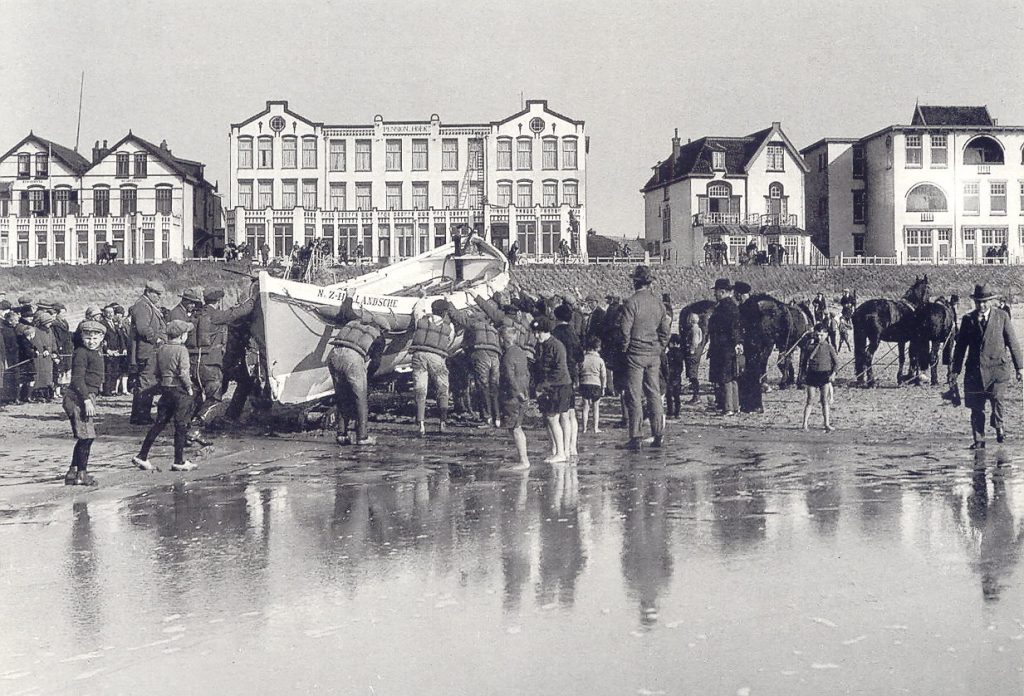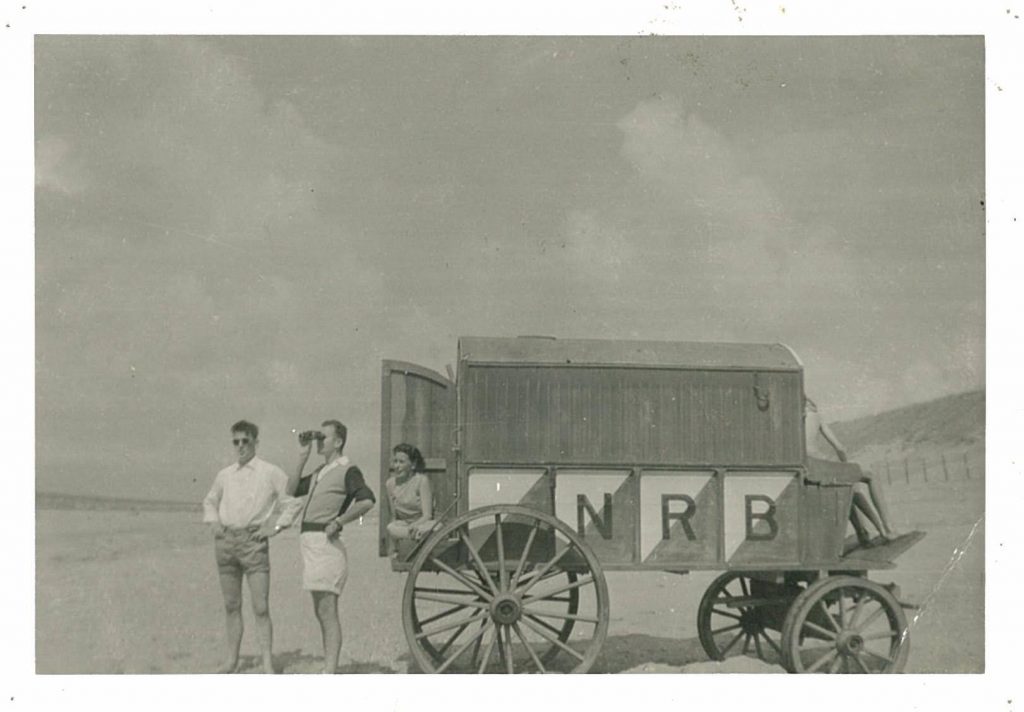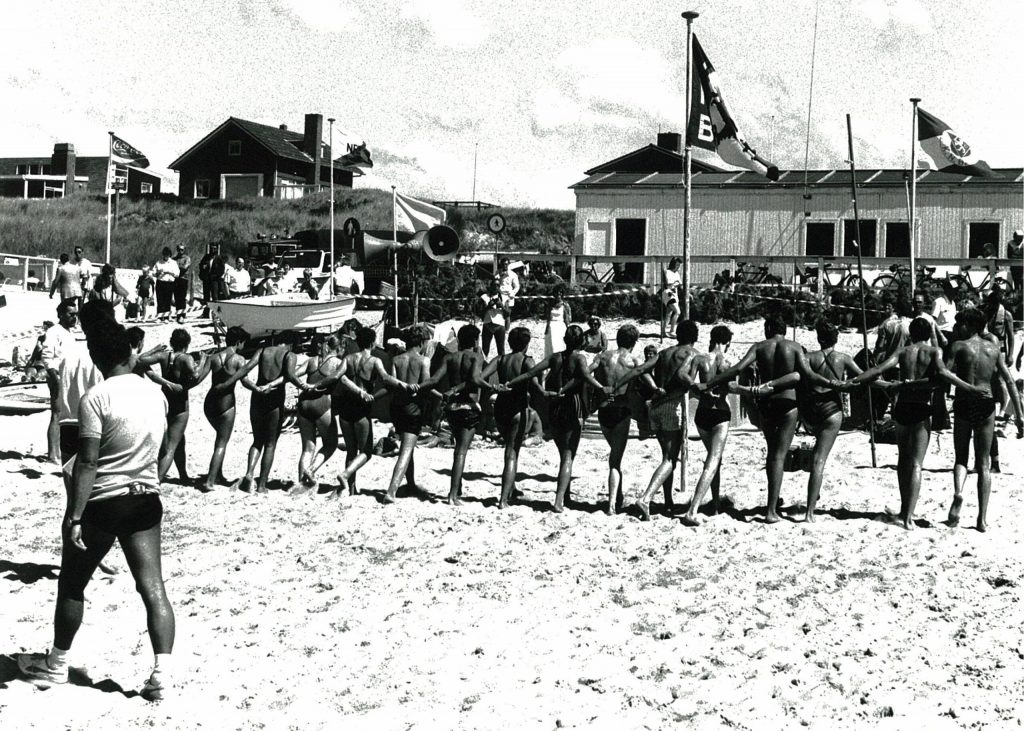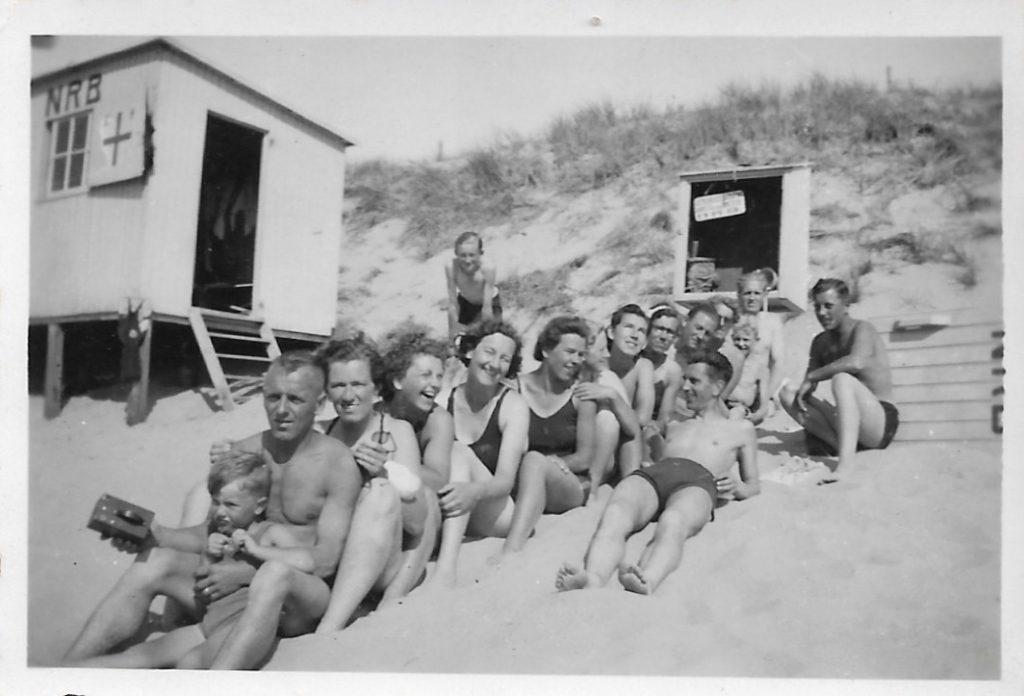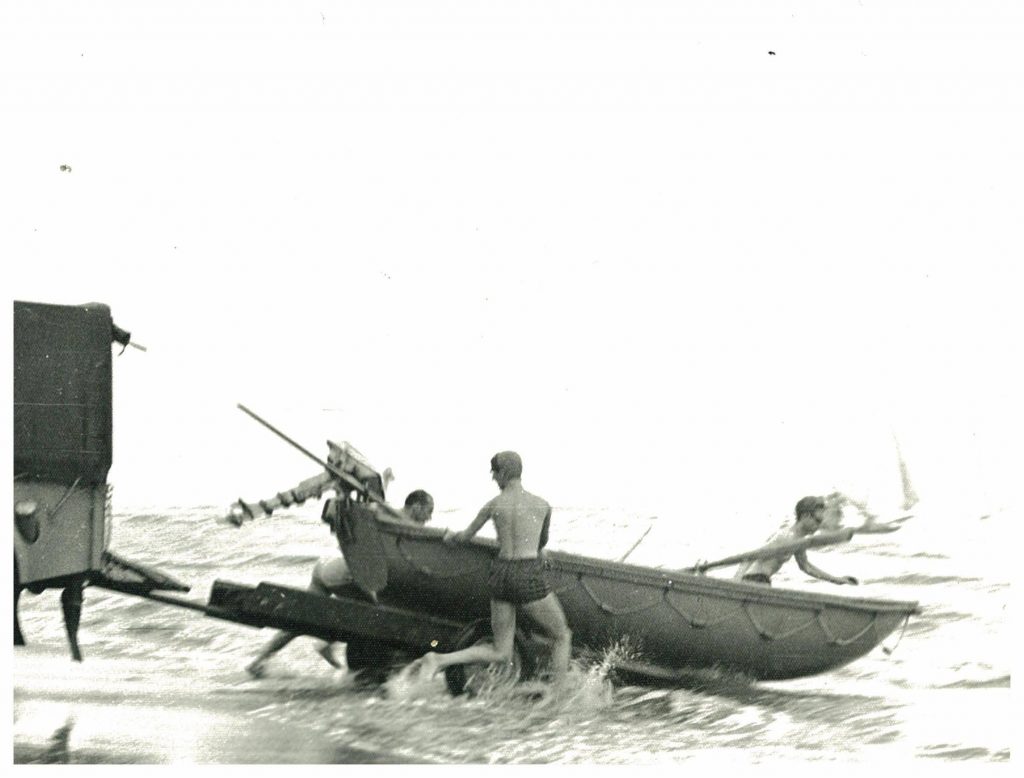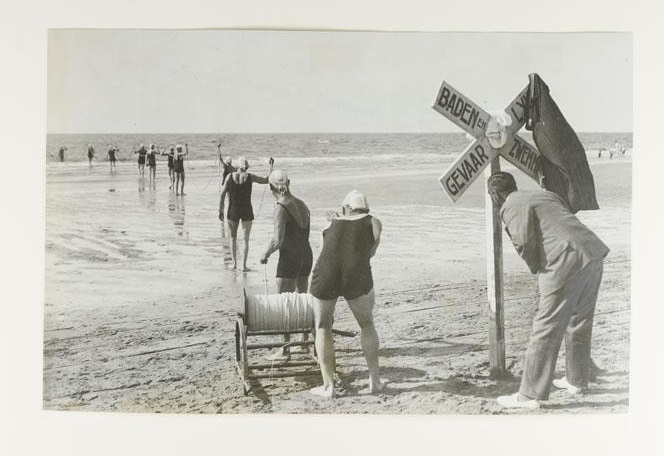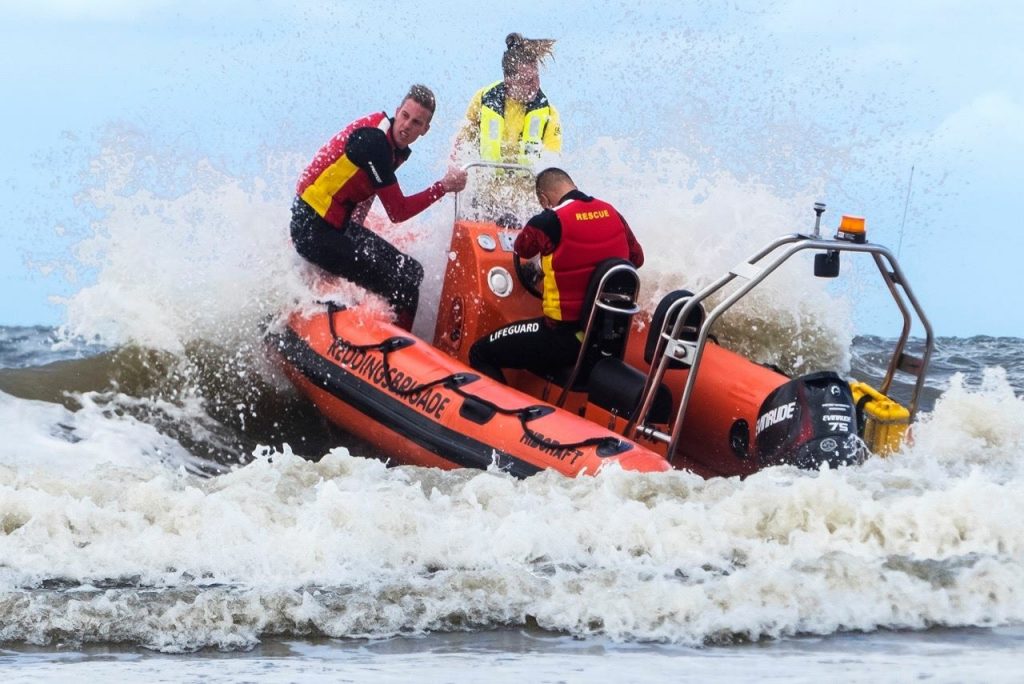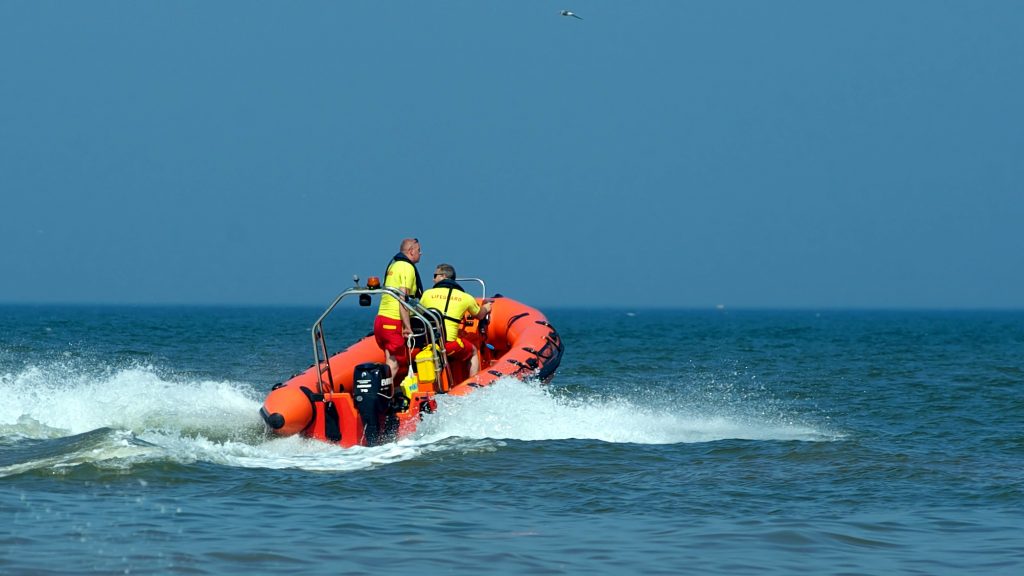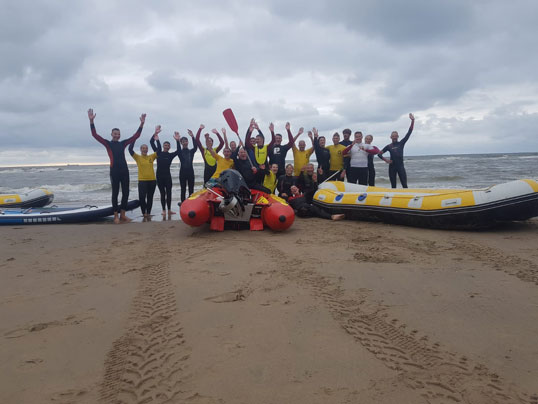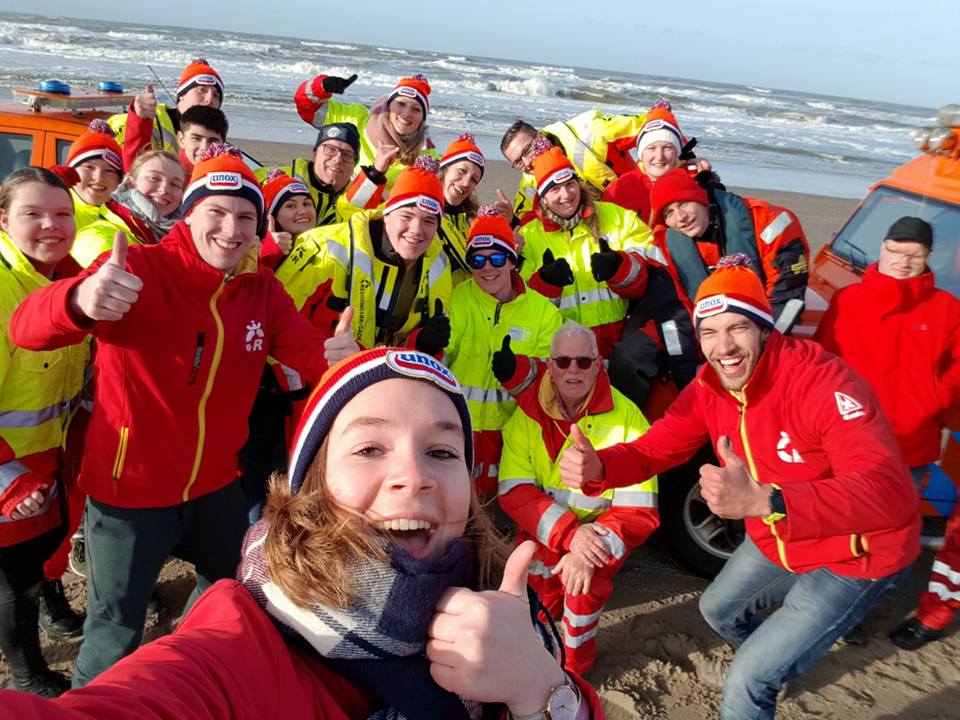The Noordwijk Rescue Brigade (NRB) will be celebrating its 100th anniversary on Tuesday 9 March. With the raising of the jubilee flag at the lighthouse, the NRB will give the go-ahead for festive activities in 2021. 'The lighthouse as a safe beacon is a wonderful location to usher in the anniversary year,' explains Enrico Hazenoot, chairman of the board. 'As long as the COVID measures are in place, there will be online activities this year. For the time being, therefore, no festive reception. We hope to be able to invite relations and the public at a safe distance over the course of the year to take a look at our new beach post and see a demonstration of our work on the beach.'
Reason for founding
On the night of 23 November 1919, the Katwijk lugger KW47 ran into a sandbank two kilometers north of Noordwijk due to high seas and poor visibility. It takes the skipper and his 10 rowers of the alarmed rescue boat quite some effort to get the boat into the sea, because there are not enough horses available to pull the boat through the soft sand. Once at the lugger, the lifeboat capsizes. Three rowers lose their lives. A new crew manages to get 8 crew members off the fishing boat. A 9e seafarer turns out to be deceased, tragically a cousin of a deceased rescuer. This event, together with many drowning cases in the years before, makes a deep impression. The decision followed to establish a rescue team to help the people on the lifeboat.
Treacherous sea
The Noordwijk Rescue Brigade and its lifeguards are now an integral part of the Noordwijk beach. Last summer, they once again proved their worth, pulling swimmers and bathers out of dangerous waters. Wim Star, former instructor, commander, skipper, board member and more, knows better than anyone that the sea can be treacherous. At 84, he is one of the oldest members. He belongs to a number of classic, dedicated brigade families, where spouses got to know each other through lifeguarding and subsequent generations are also active as lifeguards. Wim explains that most beach visitors are unaware of the dangers of the sea. 'Most visitors do not prepare for their visit to the beach. They don't read the signs on the promenade and the exits and don't delve into the meaning of the flags.' He gives an example. 'We used to cordon off dangerous mounds many times with red flags and life preservers. Promptly, people go into the sea just inside those ribbons. There are also a number of people who deliberately ignore instruction or advice. Or who react with irritation when we patrol the waterline with the brigade car at high tide on full beaches. People don't always realize that you're there for their safety and rescue operations for the lifeguards also involve risks.'
Past and Present
Wim started his swimming training at 13 and then moved on to the lifeguard training, as he still does today. When he joined the lifeguard service in '53, rowing was still done with a large wooden raft, with 4 rowers and 1 helmsman. Rowing patrols off the coast demanded a lot of training and muscle power. Wim: 'It was quite an art to row such a raft through the surf and back to the post. Boats with 5 HP engines followed, as well as an aluminum boat called the Pearly Miss and BRBs (BondReddingsBoot). Nowadays we use RIBs (Rigid Inflatable Boat) with 75 HP. The brigade's tasks also include first aid, from splinters and broken bones to resuscitation, and catching and searching for missing children and people on the beach. 'On a nice day we had as many as 100 missing children. Thanks in part to the distribution of bracelets on which parents can write their 06 numbers, this no longer happens.
Swimming as a basis
Enrico Hazenoot (60 years old) held various positions, including swimming instructor. Initially in Wassenaar where the brigade went with its own bus services, accompanied by Erika Star, Wim's wife, among others. Later in the Noordwijkse Bollenbad, now BloemenZee. Enrico: "Elementary swimming is really the foundation for being able to save yourself. This is often underexposed. That's why swimming training is an important pillar of the Noordwijk Rescue Brigade. We want to inform people from an early age about the dangers of the sea and teach them how to deal with them. At the rescue brigade you can then specialize in saving people.
For a few years now we have been running mouse swimming courses for children aged 10-12. These fortunately attract a lot of interest. Also from the national media, which allows us to reach even more children and their parents."
Safety Region
What not everyone knows is that the NRB is part of the Safety Region. We can be deployed nationwide in the event of major and minor emergencies, such as the recent natural ice skating event in the Zuid Holland-Zuid Safety Region. There are annual exercises throughout the country in which our Emergency Response Team (available 24/7 throughout the year) takes part. Wim remembers the deployment during the flooding of the Maas river in Limburg in the winter of 1993-1994. 'We helped to get residents out of their homes. It was a bizarre sight to sail through streets where you could see the lights in Christmas trees burning in abandoned houses.'
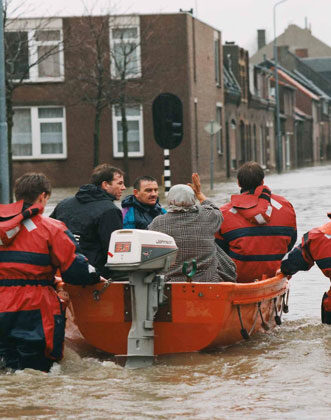
Fun and cozy
Teun Filemon is 16 years old and a junior lifeguard. His introduction started with swimming lessons at the brigade. After several swimming diplomas, including Swimming Rescue, he can be found on the beach more and more often. At 13 years old, he is still too young for the junior lifeguard course, but for two years he has been working as a 'victim' during exercises to gain experience. Teun: "I like learning all kinds of rescue methods. Lifeguarding is a great way to spend time in the summer. It's varied and fun. It's what you make of it. From chores around the post to sailing exercises and going into the sea with rescue boards. If the weather is good, we often all stay for dinner after the lifeguard shift or play beach volleyball. Can anyone become a lifeguard? 'You have to like swimming and pass a fitness test. And you shouldn't be afraid of high waves! But you'll learn that on your own.'

